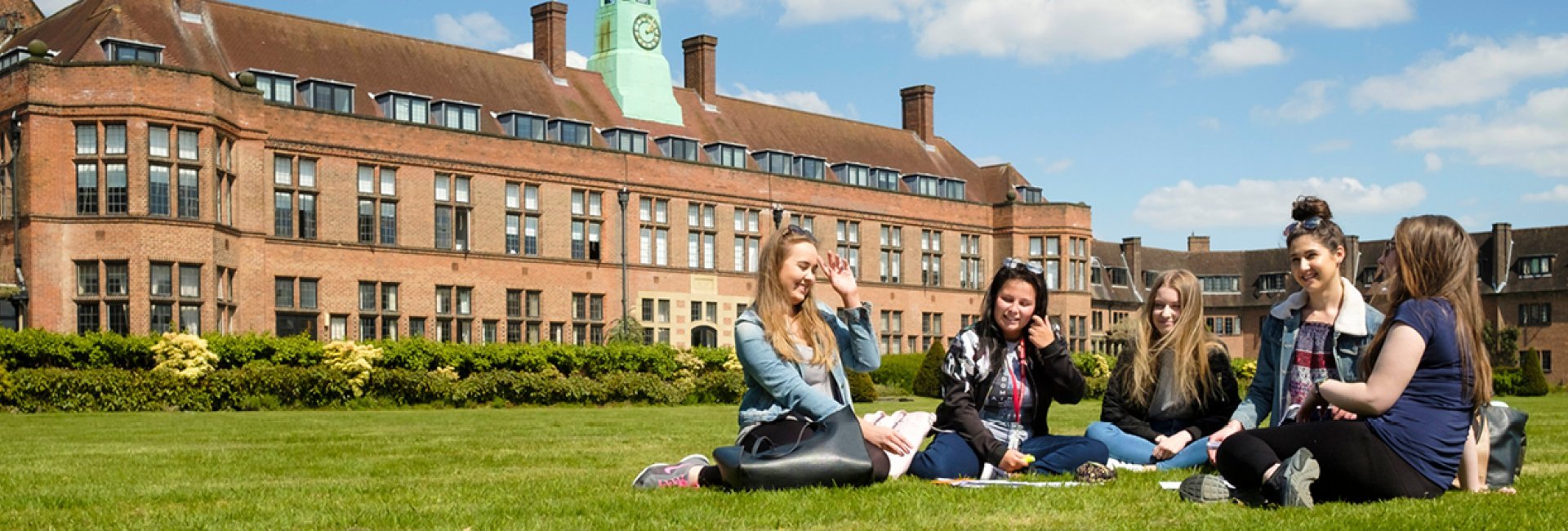Open Day- Saturday 28th June 2025
28 Jun 2025, 09:00
Liverpool, Merseyside

Please note that Combined Honours degrees at Liverpool Hope University are split 50/50. This means both subjects will be studied equally.
Sociology
Contemporary society is becoming ever more complex, dynamic and challenging, and the need to understand it increasingly important. The Sociology degree at Liverpool Hope University will help you to think critically and constructively about the key questions relating to modern society, exploring crucial topics such as: how is society organised, where does power lie, and who are the winners and losers? What are the key challenges associated with class, poverty, gender, sexuality, race, disability, religion, and climate change in the 21st century, and how do we address these? What is the future of work, and how will this impact society? How do we make sense of society? And how do we generate knowledge that might help us to improve the world in which we live?
In line with Liverpool Hope University’s commitment to social justice, Sociology will help you to understand and critique the ‘common-sense’ assumptions about the world we inhabit. You will examine a wide range of key issues that characterise and confront the modern world, both nationally and globally, and will study the theories and methods that help to explain and understand them.
Sport & Exercise Science
Our degree is founded on the core disciplines of sport and exercise science, namely psychology, physiology and biomechanics, and considers in detail three core questions from a multidisciplinary perspective. How does the human body respond to the different types of exercise, how
can we maximise the effects of training on sport and exercise performance, and how can physical activity reduce and prevent disease?
Study with us and you will have full access to the multi-million pound, state-of-the- art Health Science Building and Sports Complex, incorporating dedicated research space and new teaching laboratories. This facility houses ultra-modern equipment where you will learn to conduct complete physiological, psychological and biomechanical profiles of human sports performance using breath-by-breath expired gas analysis, blood analysis, vascular and cardiac screening, body composition analysis, eye-tracking, electromyography and motion capture to name but a few.
Liverpool Hope University offers an integrated curriculum. Please go to the course link provided for further information on the topics you will study as part of this degree.
Students are assessed via a number of methods. Please go to the course link provided for further information,
To work as a teacher at a state school in England or Wales, you will need to achieve qualified teacher status (QTS). This is offered on this course for the following level:

Learn what it's like to study at Liverpool Hope University. From key stats to campus highlights, open days, and more - find everything you need to know here.
The following entry points are available for this course:
International applicants should refer to the International section of our website: http://www.hope.ac.uk/international
UCAS Tariff points must come from a minimum of two A Levels (or equivalent). Additional points can be made up from a range of alternative qualifications.
Please contact our External Relations team directly for further information on how you can meet our entry requirements and what other qualifications may be accepted.
t: 0151 291 3111
e: enquiry@hope.ac.uk
| Test | Grade | Additional details |
|---|---|---|
| IELTS (Academic) | 6 | For International students, an overall score of 6.0 is required, with 6.0 in both reading and writing and no individual score lower than 5.5. |
This section shows the range of grades students were previously accepted with - learn more. It is designed to support your research but does not guarantee whether you will or won't get a place. Admissions teams consider various factors, including interviews, subject requirements, and entrance tests. Check all course entry requirements for eligibility.
We are unable to show previous accepted grades for this course. This could be because the course is new, it's a postgraduate course, there isn't enough historical data, or the provider has opted out of sharing their entry grades data for this course - learn more.
Subject Spotlights give you the chance to try a higher education course before you apply. Delivered by the lecturers themselves you will gain insight into what it's like to study the course and give your personal statement a boost.

Operated by the Office for Students
Employment after 15 months (Most common jobs)
Go onto work and study
The number of student respondents and response rates can be important in interpreting the data – it is important to note your experience may be different from theirs. This data will be based on the subject area rather than the specific course. Read more about this data on the Discover Uni website.
| Location | Fee | Year |
|---|---|---|
| EU | £9250 | Year 1 |
| England | £9250 | Year 1 |
| Northern Ireland | £9250 | Year 1 |
| Scotland | £9250 | Year 1 |
| Wales | £9250 | Year 1 |
| Channel Islands | £9250 | Year 1 |
| International | £12500 | Year 1 |
Tuition fee status depends on a number of criteria and varies according to where in the UK you will study. For further guidance on the criteria for home or overseas tuition fees, please refer to the UKCISA website.
Please note, some of our courses may have additional costs. Please visit the course webpage for further information.
Hope Park
Liverpool
L16 9JD
Visit our website Visit our course page
Email:enquiry@hope.ac.uk
Phone:0151 291 3111
Email:healthsciences@hope.ac.uk
Phone:0151 291 3441
Email:socialscience@hope.ac.uk
Phone:0151 291 3383